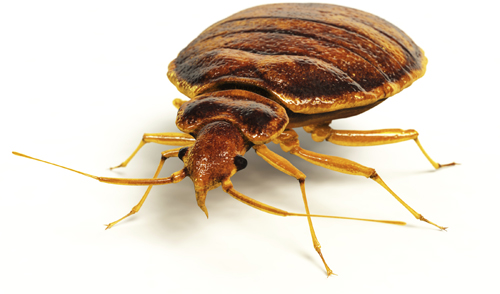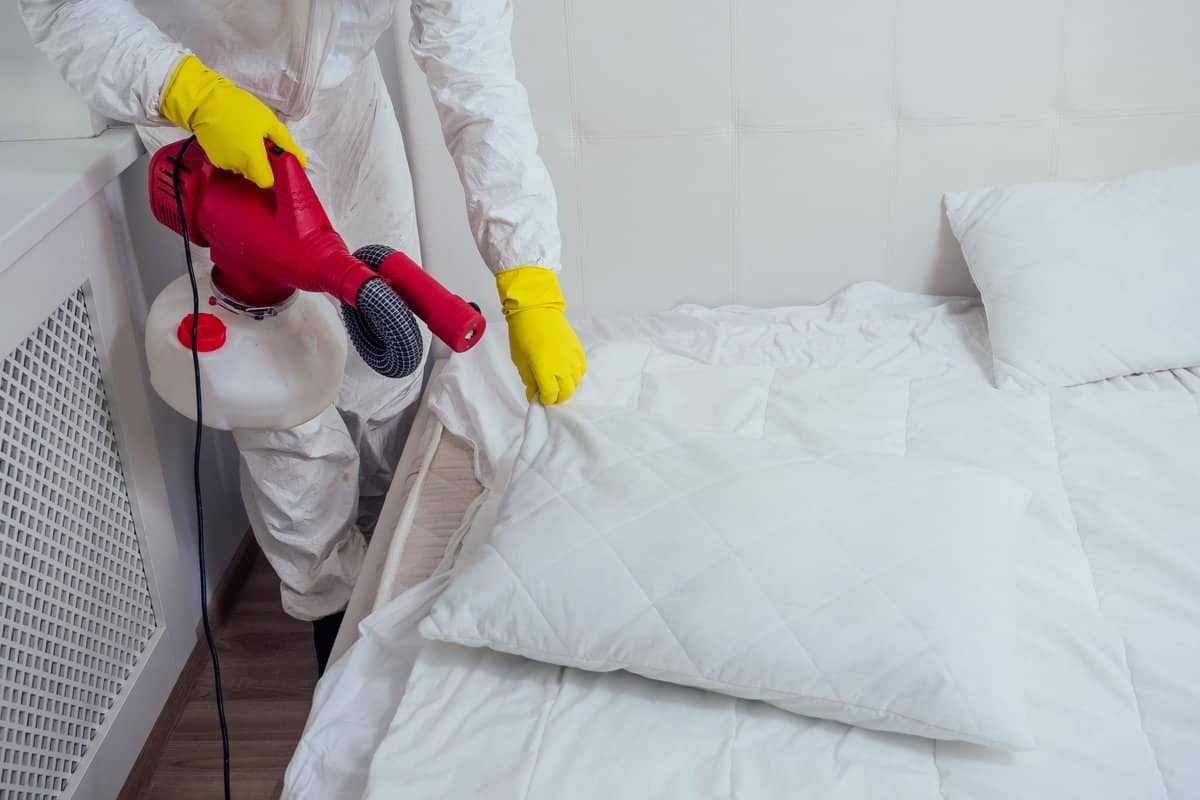A Malfunction of the Different Kinds Of Bug Control Solutions
In the realm of parasite control, a wide variety of methods exist to resolve and deal with the presence of unwanted creatures. From the standard use of chemical pesticides to extra ingenious biological control options, each method supplies unique benefits and restrictions. As we browse with the varied landscape of insect control remedies, understanding the details of each method comes to be critical in establishing the most reliable course of action. Keep tuned as we explore the nuanced world of parasite control methods and uncover how each kind plays an one-of-a-kind role in securing our environments.
Chemical Pesticides
Chemical chemicals are generally utilized in pest control to effectively remove a wide array of pests and various other bugs. These chemicals function by targeting the nerve system of the parasites, disrupting their regular features, and eventually causing their demise. Using chemical pesticides has actually been a staple in the parasite control market for years because of their effectiveness and fast results.

Nevertheless, it is important to make use of chemical pesticides with care because of their possible hazardous impacts on the setting and non-target species. Incorrect application or overuse of these chemicals can lead to contamination, injury to advantageous bugs, and resistance growth in insect populaces. Consequently, it is essential to comply with safety and security guidelines and policies when utilizing chemical pesticides for parasite control.
Biological Control Approaches
Considering the potential ecological influences and threats connected with chemical pesticides, organic control techniques use a more sustainable approach to managing pest populaces. Organic control includes the use of natural adversaries, such as parasites, virus, and killers, to suppress pest populaces. This technique is frequently more targeted, influencing only the specific parasite types while minimizing injury to helpful insects, human beings, and the atmosphere.

When established, natural adversaries can aid regulate pest populaces constantly without the need for repeated applications of chemicals. In addition, organic control is typically much more affordable and can help reduce chemical resistance in parasite populaces over time.

Mechanical Insect Control
Mechanical pest control entails the physical manipulation or elimination of insects to handle their populations properly. This method is usually utilized together with other bug control strategies for detailed pest administration. One usual instance of mechanical parasite control is utilizing catches to capture rodents or pests. These catches can be established in tactical areas where pests are understood to dwell, aiding to reduce their numbers.
Another mechanical technique is the usage of obstacles such as screens, fencings, or internet to obstruct parasites from entering specific areas. By physically avoiding bugs from accessing a place, the chance of problems or damages can be considerably decreased. Furthermore, hands-on techniques like handpicking insects off structures or plants can be effective for smaller-scale infestations.
While mechanical insect control methods can be labor-intensive, they provide a non-chemical alternative that can be eco-friendly and lasting. By targeting bugs directly, mechanical control techniques can help maintain parasite populaces in check without depending on pesticides.
Natural Remedies
Making use of all-natural treatments for insect control provides a environment-friendly and sustainable strategy to handling insect populations without resorting to chemical treatments. All-natural treatments involve making use of compounds stemmed from plants, minerals, or other normally happening resources to hinder or get rid of insects. Growing specific herbs like basil, mint, or lavender around your building can push back insects due to their solid scents. Diatomaceous planet, a powder made from fossilized algae, can be utilized to combat bugs like ants, cockroaches, and bed insects by dehydrating their exoskeletons.
In addition, necessary oils such as tea tree oil or neem oil have insecticidal residential or commercial properties that can successfully regulate insects while being risk-free for the setting. Another natural treatment is presenting beneficial insects like ladybugs or praying mantises to your garden to exploit harmful bugs. By including these all-natural solutions into insect administration strategies, individuals can decrease their reliance on artificial chemicals and advertise a much healthier, extra balanced ecosystem.
Integrated Insect Administration
Integrated Bug Administration (IPM) is a thorough strategy that incorporates numerous strategies to effectively control pest populations while minimizing risks to human health and the environment. IPM involves the integration of multiple parasite control approaches such as organic control, habitat control, modification of cultural practices, and using immune plant ranges. By utilizing a combination of these strategies, IPM intends to minimize reliance on chemical pesticides, which can have negative influence on ecosystems and human health.
One trick element of IPM is the focus on prevention. By carrying out steps to avoid insect infestations prior to they take place, such as preserving correct sanitation and sealing entrance factors, the need for responsive bug control actions is reduced. Monitoring and normal assessments play a vital function in IPM, permitting very early detection of parasite problems and prompt treatment.
Conclusion
In final thought, the numerous types of insect control options supply a range of options for successfully taking care of parasite infestations. Biological control techniques use all-natural killers to regulate pests. Integrated Insect Administration integrates several approaches for an all natural approach to pest control.
Chemical pesticides are typically used in insect control to successfully get rid of a large variety of bugs and various other bugs.Mechanical bug control includes the physical adjustment or elimination of bugs to handle their populaces successfully (Kings pest control Cincinnati).Utilizing natural solutions for parasite control supplies a green and lasting method to managing parasite populaces without resorting to chemical interventions.Integrated Insect Management (IPM) is a thorough technique that integrates various approaches to successfully manage pest populations while decreasing threats to human health and wellness and the environment.In verdict, the different types of parasite control options offer an array of Kings pest control Cincinnati Ohio choices for efficiently taking care of bug invasions